Kyle Michel Sullivan's Blog: https://www.myirishnovel.com/, page 259
August 2, 2014
"Les Enfants du Paradis" by Marcel Carne and Jacques Prevert
I finished the latest rewrite of The Vanishing of Owen Taylor and just need to input the red pen changes, so I treated myself to one of the greatest movies ever made, bar none. It's got love, comedy, romance, tragedy, heartbreak, murder, insanity, hope, perseverance, the whole scope of human experience in all its beauty and stupidity. Even Rotten Tomatoes gives it a 97% rating, and says:
Even in 1945, Marcel Carne's "Children of Paradise" was regarded as an old-fashioned film. Set in the Parisian theatrical world of the 1840s, Jacques Prevert's screenplay concerns four men in love with the mysterious Garance (Arletty). Each loves Garance in his own fashion, but only the intentions of sensitive mime-actor Deburau (Jean-Louis Barrault) are entirely honorable; as a result, it is he who suffers most, hurdling one obstacle after another in pursuit of an evidently unattainable goal. In the stylized fashion of 19th-century French drama, many grand passions are spent during the film's totally absorbing 195 minutes. The film was produced under overwhelmingly difficult circumstances during the Nazi occupation of France, and many of the participants/creators were members of the Maquis, so the movie's existence itself is somewhat miraculous. Children of Paradise has gone on to become one of the great romantic classics of international cinema. ~ Hal Erickson
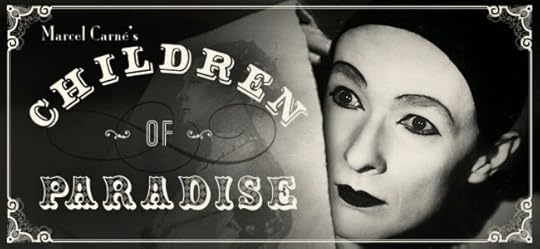 Baptiste is based on Jean-Gaspard Deburau, who is credited with inventing the character of Pierrot in Mime sometime between 1825 and 1830 at the Theatre des Funambules. He was born the same day as me, albeit in 1796, and died when he was 50. The character in the movie is, of course, enhanced in many ways, but the Mime presented is supposedly very close to what he used to do.
Baptiste is based on Jean-Gaspard Deburau, who is credited with inventing the character of Pierrot in Mime sometime between 1825 and 1830 at the Theatre des Funambules. He was born the same day as me, albeit in 1796, and died when he was 50. The character in the movie is, of course, enhanced in many ways, but the Mime presented is supposedly very close to what he used to do.
I have the Criterion edition, which includes an introduction by Terry Gilliam that is wonderfully droll and is a lovely copy of the film, showing off its glorious black and white cinematography. I saw it first in college and have seen it a couple more times, but not in years. I'd sold my copy when I lived in Texas and needed money. I bought this one a couple years ago, when I was in LA for the book fair and had an income, again. It still enthralls me.
I do have one question as regards the film. Is it wrong of me to identify both with Baptiste, the tortured genius who suffers from love for someone he cannot have, and also for Lacenaire, an unpublished playwright whose soul was built for murder? One the romantic in search of pure beauty, the other a cynic who sees the world for the banality that it is.
Does it really matter?
Even in 1945, Marcel Carne's "Children of Paradise" was regarded as an old-fashioned film. Set in the Parisian theatrical world of the 1840s, Jacques Prevert's screenplay concerns four men in love with the mysterious Garance (Arletty). Each loves Garance in his own fashion, but only the intentions of sensitive mime-actor Deburau (Jean-Louis Barrault) are entirely honorable; as a result, it is he who suffers most, hurdling one obstacle after another in pursuit of an evidently unattainable goal. In the stylized fashion of 19th-century French drama, many grand passions are spent during the film's totally absorbing 195 minutes. The film was produced under overwhelmingly difficult circumstances during the Nazi occupation of France, and many of the participants/creators were members of the Maquis, so the movie's existence itself is somewhat miraculous. Children of Paradise has gone on to become one of the great romantic classics of international cinema. ~ Hal Erickson
 Baptiste is based on Jean-Gaspard Deburau, who is credited with inventing the character of Pierrot in Mime sometime between 1825 and 1830 at the Theatre des Funambules. He was born the same day as me, albeit in 1796, and died when he was 50. The character in the movie is, of course, enhanced in many ways, but the Mime presented is supposedly very close to what he used to do.
Baptiste is based on Jean-Gaspard Deburau, who is credited with inventing the character of Pierrot in Mime sometime between 1825 and 1830 at the Theatre des Funambules. He was born the same day as me, albeit in 1796, and died when he was 50. The character in the movie is, of course, enhanced in many ways, but the Mime presented is supposedly very close to what he used to do.I have the Criterion edition, which includes an introduction by Terry Gilliam that is wonderfully droll and is a lovely copy of the film, showing off its glorious black and white cinematography. I saw it first in college and have seen it a couple more times, but not in years. I'd sold my copy when I lived in Texas and needed money. I bought this one a couple years ago, when I was in LA for the book fair and had an income, again. It still enthralls me.
I do have one question as regards the film. Is it wrong of me to identify both with Baptiste, the tortured genius who suffers from love for someone he cannot have, and also for Lacenaire, an unpublished playwright whose soul was built for murder? One the romantic in search of pure beauty, the other a cynic who sees the world for the banality that it is.
Does it really matter?

Published on August 02, 2014 20:09
August 1, 2014
I'm a pathetic drunk...
2 glasses of wine and all I want to do is go to sleep. BOR-ring. And blank-headed. Work on OT is now slated for tomorrow. So how's about something to liven up our worlds, instead? The biggest laugh I've ever had was watching this "escape artist" skit on Carol Burnett. Still cracks me up, so...
It's not what she says or does so much as how she says and does it...and I oughta put that to melody...
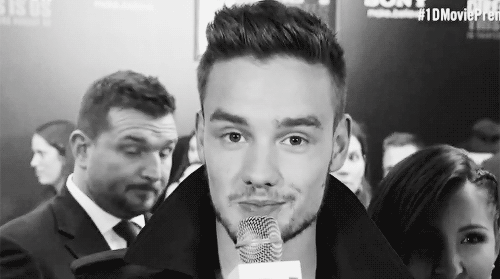 Ah, Liam, my thought, exaclty...
Ah, Liam, my thought, exaclty...
It's not what she says or does so much as how she says and does it...and I oughta put that to melody...
 Ah, Liam, my thought, exaclty...
Ah, Liam, my thought, exaclty...
Published on August 01, 2014 19:41
July 31, 2014
Music helps...
Depeche Mode's song gave me the light to see a path through the tangled words, and I now have a clearer sense of the chapter and what it needed. I've probably added a couple pages, but some of it's repetition and plot points that can be moved to earlier points in the book. What matters is, it no longer feels forced or ABC. Much better.
That's how I spent my birthday -- getting Jake into some deep shit and then finding a way out, again. I'd thought I'd take a jaunt over to Canada and have a nice meal at a steakhouse I like, but I didn't feel up to handling the nonsense of afternoon traffic beyond what it took to get me home. So instead, I dozed a little as I streamed Raul Campos' most recent show on KCRW, then woke up, grilled a hot dog and got to work on my own version of Revelations.
BTW, if you ever want to see a case of a decent website redesigned into something that is impossible to deal with, check KCRW's out. I used to be able to go straight into the archives and pull up any DJ I wanted. Now? Just try and find any of them being linked to. The main page is so full of crap, you can't find anything. You have to search by name, and then it brings up a dozen different possibilities, only one of which is their latest program. Damn, it's a chore.
I have no problem with change, so long as it makes sense. When it's done just for its own sake, it irritates me, because 9 times out of 10 it's not for the better. Our computer setup at work is like that. We had an okay system that did need upgrading, but what's replaced it is insane. For example, I can't save documents from a program to our server unless I first save it to my desktop and then shift it over, when it used to be a one-click process.
That's not to say other things aren't better, but when a new system adds steps to what used to be easy you have to wonder what the idiots who wrote the thing were thinking.
Probably fell in love with their code, says he who often loves his words too much.
That's how I spent my birthday -- getting Jake into some deep shit and then finding a way out, again. I'd thought I'd take a jaunt over to Canada and have a nice meal at a steakhouse I like, but I didn't feel up to handling the nonsense of afternoon traffic beyond what it took to get me home. So instead, I dozed a little as I streamed Raul Campos' most recent show on KCRW, then woke up, grilled a hot dog and got to work on my own version of Revelations.
BTW, if you ever want to see a case of a decent website redesigned into something that is impossible to deal with, check KCRW's out. I used to be able to go straight into the archives and pull up any DJ I wanted. Now? Just try and find any of them being linked to. The main page is so full of crap, you can't find anything. You have to search by name, and then it brings up a dozen different possibilities, only one of which is their latest program. Damn, it's a chore.
I have no problem with change, so long as it makes sense. When it's done just for its own sake, it irritates me, because 9 times out of 10 it's not for the better. Our computer setup at work is like that. We had an okay system that did need upgrading, but what's replaced it is insane. For example, I can't save documents from a program to our server unless I first save it to my desktop and then shift it over, when it used to be a one-click process.
That's not to say other things aren't better, but when a new system adds steps to what used to be easy you have to wonder what the idiots who wrote the thing were thinking.
Probably fell in love with their code, says he who often loves his words too much.

Published on July 31, 2014 20:39
July 30, 2014
"Precious"
This very off-beat rendition of one of Depeche Mode's loveliest songs is just quirky enough to make its beauty even more evident. Dave Gahan gives it good voice...and lovely attitude. And gives me a truly clear view of what Jake and Tone are all about.
Aber es ist eine verrückte Situation...die Wahrheit!
Aber es ist eine verrückte Situation...die Wahrheit!

Published on July 30, 2014 19:42
July 29, 2014
Redid 26 pages...
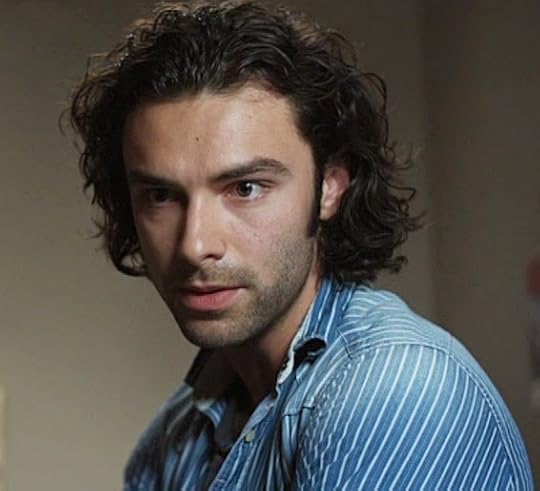 ...And I'm not happy with them. They're still too scattered to make much sense. It's all one chapter and needs to explain everything, but in a way that's natural. I feel like I'm forcing too much of it. So I'm printing these pages out and going over them, again. And again, if need be. These are a pivotal part of the story, and it has to work for Jake to continue on.
...And I'm not happy with them. They're still too scattered to make much sense. It's all one chapter and needs to explain everything, but in a way that's natural. I feel like I'm forcing too much of it. So I'm printing these pages out and going over them, again. And again, if need be. These are a pivotal part of the story, and it has to work for Jake to continue on.I think I'll pick up some beer or wine, after work tomorrow, and try a little of that. Was it Hemingway who said, "Write drunk, edit sober." Worked for him...till he killed himself.
C'mon, Jake, we can do this...we can do this...

Published on July 29, 2014 20:37
July 28, 2014
I love my Jake...
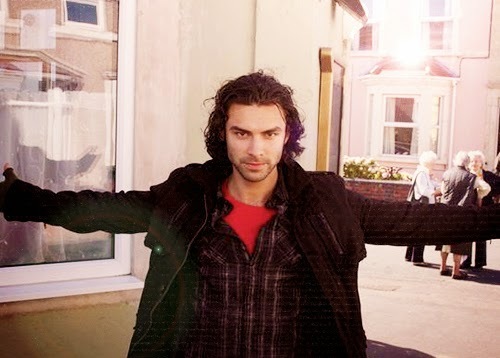 He's got balls. No question in my mind. A real goof in the face of death...but never out of control...sort of. Jesus, the big reveal's either going to be the best thing I've ever written, or the worst. Or both, you never know. I'm open to impossibilities.
He's got balls. No question in my mind. A real goof in the face of death...but never out of control...sort of. Jesus, the big reveal's either going to be the best thing I've ever written, or the worst. Or both, you never know. I'm open to impossibilities.I no longer worry about whether or not a reader figures out who's behind what happened to Owen Taylor before Jake spits it out; it's not as important as his journey...and Tone's. That's not to say it's UN-important; it is. But Jake's the one who has to live it, and my goal is to make the last chapter of his story what matters more than anything preceding that. After all, it's how things are at the end that counts.
I'm enjoying the pain of writing, again. The irritation with myself for getting too verbose and cute with what's going on. The joy when I catch a phrase or sentence just right. The awe when a character takes over and leads me deeper into their soul. The anger when it doesn't make a damn bit of sense, even to me when I'm the one who wrote it.
And yes -- my characters do have souls, each bright and shining in its own way. Even the bad guys. They have to, in order for them to live...even on a page or in the back of someone's mind.
I wonder if the church considers that blasphemy?

Published on July 28, 2014 20:44
July 27, 2014
Strategic reworking
I'm reworking the last hundred pages of OT, clarifying and solidifying the structure. Then I'll input all the changes over the next week, for everything, and print out a new copy. It's still over 500 pages long, but I don't care; the story is what it is.
Interesting shopping experiences, today. Before doing my laundry, I had lunch and went grocery shopping at a Wegmans near a mall, for non-perishable items...and found just 5 of the things on my list. That's it. No tea that I wanted. No water. No Dr. Pepper. And on and on. So I put back those 5 things and will check another grocery store en route home, tomorrow.
Then I spent too much of the day trying to buy new clothes at that mall. I needed new shoes, pants, shirts; I haven't bought anything in over a year. Man...it was not easy. I found some decent shirts and a nice pair of shoes...in a 10 ½!! I always took a 9 ½ to a 10, before. But these were made in China, so maybe it was a case of different sizing. I dunno. It ain't my feet that's gotten fat.
The worst thing was, I couldn't find any pants I liked. I found some that were okay, but not in my size. And the ones in my size were nothing like I wanted. I like cargo pants because I can put my wallet in the leg pocket instead of back, but you think I could find anything other than cargo shorts? I don't do shorts. I guess my style's gone out of style. I'll hit online to see if I can find some, tomorrow.
I did ironing and watched The Sound of Music. It's a very well-structured film, even if it is simplistic and plays way too much with historical accuracy. But it's a nice way to spend time while doing a boring chore.
And Daniel Truhuite looked good in his telegram delivery uniform.
Interesting shopping experiences, today. Before doing my laundry, I had lunch and went grocery shopping at a Wegmans near a mall, for non-perishable items...and found just 5 of the things on my list. That's it. No tea that I wanted. No water. No Dr. Pepper. And on and on. So I put back those 5 things and will check another grocery store en route home, tomorrow.
Then I spent too much of the day trying to buy new clothes at that mall. I needed new shoes, pants, shirts; I haven't bought anything in over a year. Man...it was not easy. I found some decent shirts and a nice pair of shoes...in a 10 ½!! I always took a 9 ½ to a 10, before. But these were made in China, so maybe it was a case of different sizing. I dunno. It ain't my feet that's gotten fat.
The worst thing was, I couldn't find any pants I liked. I found some that were okay, but not in my size. And the ones in my size were nothing like I wanted. I like cargo pants because I can put my wallet in the leg pocket instead of back, but you think I could find anything other than cargo shorts? I don't do shorts. I guess my style's gone out of style. I'll hit online to see if I can find some, tomorrow.
I did ironing and watched The Sound of Music. It's a very well-structured film, even if it is simplistic and plays way too much with historical accuracy. But it's a nice way to spend time while doing a boring chore.
And Daniel Truhuite looked good in his telegram delivery uniform.

Published on July 27, 2014 20:57
July 26, 2014
Done reading, this time...
Read through the second half of OT and it needs a lot more work. The ending explanation is confusing, even though it's goofy. Well, one part is goofy...and that's where some confusion comes in. I think I need to cut a lot of what happens after it and settle as much of the reveal as possible in one location at one time. The way it is now is too rambling, easy and quick, even though it's involved.
What's funny is, it doesn't address some other things that are laid out as possible clues. And I wonder if I can get away with letting a guilty person go free from the legal ramifications of what they did. I don't know. I'll think about that as I do the next rewrite.
 What's interesting is how this painting begins to take on greater meaning and importance during the story. I'd forgotten I was edging towards that, so just need to expand upon it, a bit more.
What's interesting is how this painting begins to take on greater meaning and importance during the story. I'd forgotten I was edging towards that, so just need to expand upon it, a bit more.
I also need to clarify why Jake's Uncle Owen didn't invite him to come live with him in Palm Springs after he was kicked out of his home. That still doesn't make sense to me. What I have now -- that he wanted Jake to learn how to stand on his own two feet -- comes across as weak. I need something a lot better.
I think I'll do another read through with red pen, just to see if I can figure out these aspects and work them in.
What's funny is, it doesn't address some other things that are laid out as possible clues. And I wonder if I can get away with letting a guilty person go free from the legal ramifications of what they did. I don't know. I'll think about that as I do the next rewrite.
 What's interesting is how this painting begins to take on greater meaning and importance during the story. I'd forgotten I was edging towards that, so just need to expand upon it, a bit more.
What's interesting is how this painting begins to take on greater meaning and importance during the story. I'd forgotten I was edging towards that, so just need to expand upon it, a bit more.I also need to clarify why Jake's Uncle Owen didn't invite him to come live with him in Palm Springs after he was kicked out of his home. That still doesn't make sense to me. What I have now -- that he wanted Jake to learn how to stand on his own two feet -- comes across as weak. I need something a lot better.
I think I'll do another read through with red pen, just to see if I can figure out these aspects and work them in.

Published on July 26, 2014 19:57
July 25, 2014
Back on track...
I've read through the first half of OT, making notes as I go along and finding inconsistencies that need to be addressed, but all I'm doing is red pen comments, right now. No inputting till I go through this draft, again; I want to remind myself of everything I've got in here before I figure out what to keep and what to get rid of.
I'm doing it this way because it's become a very complex story told in a simple, straightforward way. I've changed some characters' names -- like Father Sebastian to Father Boniface and Grace Karadjian to Grace Nieri -- and found my descriptions sometimes contradict what I've set up -- like where people live in the "fortress" condos Owen developed.
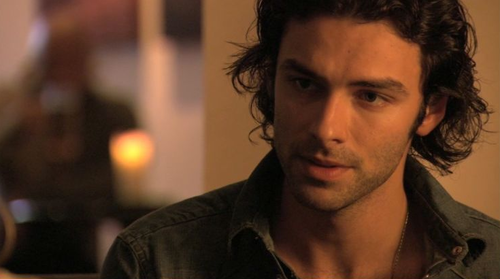
Plus there are clues I set up and have yet to do anything with. Some I don't think I ever went back to, in any attempt to explain them. It makes me feel better, doing this. The first half is pretty damn solid, and Jake's on track, again.
Tomorrow I'll go through the second half and know what needs to be done. Then I'll get down to it...maybe input the changes I have now and print out a new copy.
I feel a lot better, now.
I'm doing it this way because it's become a very complex story told in a simple, straightforward way. I've changed some characters' names -- like Father Sebastian to Father Boniface and Grace Karadjian to Grace Nieri -- and found my descriptions sometimes contradict what I've set up -- like where people live in the "fortress" condos Owen developed.

Plus there are clues I set up and have yet to do anything with. Some I don't think I ever went back to, in any attempt to explain them. It makes me feel better, doing this. The first half is pretty damn solid, and Jake's on track, again.
Tomorrow I'll go through the second half and know what needs to be done. Then I'll get down to it...maybe input the changes I have now and print out a new copy.
I feel a lot better, now.

Published on July 25, 2014 20:58
July 24, 2014
Sea of Tranquility...ish...
 I've started back to work on The Vanishing of Owen Taylor. Carli's Kills is going to need a lot of work to become a book, while OT is at the point of merely requiring clarity and simplification. So I've delved into the first 3 chapters -- and I think I'll merge them into 2, especially since there's a bit of repetition in them.
I've started back to work on The Vanishing of Owen Taylor. Carli's Kills is going to need a lot of work to become a book, while OT is at the point of merely requiring clarity and simplification. So I've delved into the first 3 chapters -- and I think I'll merge them into 2, especially since there's a bit of repetition in them.I like Jake's voice in this. It's simple and direct, already giving off a no-nonsense vibe. It helps me focus on simplifying the story...and on keeping secrets. Jake doesn't gossip, so he's not revealing anything until he is ready to. Later in the book, he's going to recall what he did to survive in prison...and it wasn't nice or easy. Hell, it makes OZ looks like the sweet-natured fantasy that it was, and I've only done one pass on it.
I checked out the ending, first, and it's pretty confused so will need extra attention. But it got me to the place I needed to be to make the rest work. I also realized I was being a wuss about solving the mystery; what happens is what happens, and that is that. But I will say, the way Jake reveals it all...well, at one point it's so wild, I think readers will either love it or hate the hell out of it.
What makes me feel good is, I did all this despite me fighting off a headache that came thanks to Zyrtek no longer working for me. I've sneezed more in the last three days than in the previous three weeks, which was less than zero help to my mood. Ugh, when are they going to bio-engineer new sinuses and eyeballs that are allergy free? I'm weary of semi-nose bleeds and tears whispering from my eyes.
Maybe I'll just sort some Dr. Pepper and see if that helps.

Published on July 24, 2014 20:37



